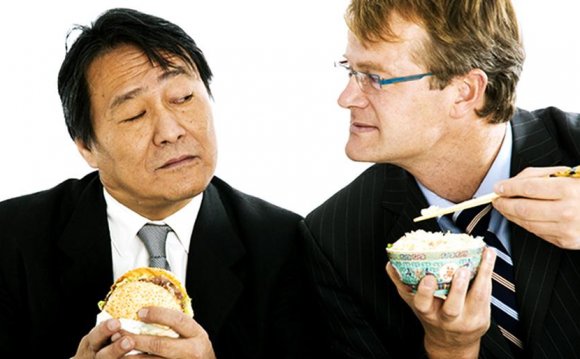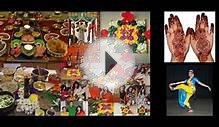
 The oriental
The oriental
Chinese is a family of closely-related but mutually unintelligible languages. These languages tend to be known local languages, dialects of Chinese or varieties of Chinese. In most over 1.2 billion individuals speak a number of types of Chinese.
All types of Chinese participate in the Sino-Tibetan category of languages and each one has unique dialects and sub-dialects, which are almost mutually intelligible.
Why-not find out some of good use Manadarin or Cantonese expressions before your check out? As an alternative discover much more towards variations in the oriental and watch the video below.
Chinese community & Culture
The significance of "Face"- The thought of 'face' roughly translates as 'honour', 'good reputation' or 'respect'.
- You will find four forms of 'face':
2) Gei-mian-zi: involves the offering of face to others through showing value.
3) Liu-mian-zi: this will be developed by avoiding errors and showing wisdom for action.
4) Jiang-mian-zi: this is how face is increased through other individuals, in other words. some one complementing you to an associate.
- It is important you avoid dropping face or evoking the lack of face constantly.
Confucianism
Confucianism is a method of behaviours and ethics that anxiety the responsibilities of people towards each other based on their particular commitment. The essential tenets are based upon five different connections:
- Ruler and topic
- Wife and husband
- Parents and children
- Brothers and sisters
- Friend and friend
Confucianism stresses responsibility, sincerity, commitment, honour, filial piety, respect for age and seniority. Through maintaing harmonious relations as people, community itself becomes steady.
Collectivism vs. Individualism
- Generally, the Chinese are a collective culture with a need for team affiliation, whether to their loved ones, college, work team, or nation.
- In order to preserve a feeling of equilibrium, they work with decorum all the time and will not do just about anything resulting in another person community shame.
- They truly are ready to subjugate their particular emotions for good associated with the team.
- This is seen through silence in extremely structured conferences. If some body disagrees by what another individual states, rather than disagree publicly, the person will stay quiet. This provides face to another individual, while talking up would make both events drop face.
Non-Verbal Interaction
- Chinese non-verbal communication speaks amounts.
- Considering that the Chinese shoot for harmony and generally are team reliant, they depend on facial phrase, modulation of voice and position to share with them exactly what someone seems.
- Frowning while some body is speaking is translated as an indication of disagreement. For that reason, most Chinese maintain an impassive appearance whenever speaking.
- It really is considered disrespectful to look into someone else's eyes. In crowded situations the Chinese avoid attention contact to offer by themselves privacy.
Chinese Etiquette and Customs
- Greetings are formal therefore the earliest individual is always greeted very first.
- Handshakes will be the common kind of greeting with people from other countries.
- Numerous Chinese can look towards the surface whenever greeting some one.
- Address the individual by an honorific subject and their particular surname. If they desire to relocate to a first-name foundation, they are going to counsel you which title to make use of.
- The Chinese have actually a great feeling of humour. They may be able laugh at themselves many easily whether they have a comfortable relationship with the other individual. Get ready to laugh at your self because of the correct circumstances.
Gift Giving Etiquette
 Generally speaking, presents receive at Chinese new-year, weddings, births and much more recently (as a result of advertising and marketing), birthdays.
Generally speaking, presents receive at Chinese new-year, weddings, births and much more recently (as a result of advertising and marketing), birthdays.
- The Chinese like food and a good meals container will make a great present.
- Do not give scissors, knives or other cutting utensils because they suggest the cutting associated with the commitment.
- Try not to provide clocks, handkerchiefs or straw shoes as they are related to funerals and death.
- Try not to give plants, as many Chinese associate these with funerals.
- Do not put gift ideas in white, blue or black paper.
- Four is an unfortunate number so cannot offer four of such a thing. Eight could be the luckiest number, so providing eight of anything brings chance towards the recipient.
- Constantly present gift ideas with two arms.
- Gift ideas are not opened when received.
- Gift ideas might be refused three times before they've been acknowledged.
Dining Etiquette
- The Chinese would rather amuse in public areas in the place of within their houses, specially when entertaining people from other countries.
- If you should be invited for their house, ponder over it a great honour. In the event that you must turn down these types of an honour, it really is considered polite to describe the conflict within routine so your actions are not taken as a small.
- Come promptly.
- Eliminate your shoes before going into the house.
- Bring a tiny gift on hostess.
- Eat really to demonstrate you are experiencing the food!
- Table ways:
- Learn to make use of chopsticks.
- Wait become told where you should stay. The visitor of honour is given a seat dealing with the entranceway.
- The number starts eating first.
- You should attempt everything that emerges for your requirements.
- Never ever eat the last piece from the portion tray.
- Be observant to many other peoples' needs.
- Chopsticks ought to be returned to the chopstick remainder after every couple of bites and when you drink or stop to speak.
- The number supplies the first toast.
- Try not to put bones inside bowl. Place them on the table or in a special dish for the function.
- Keep the rice bowl close to the mouth area while eating.
- Don't be offended if a Chinese person tends to make slurping or belching sounds; it just shows that they are appreciating their meals.
- There are no rigid guidelines about completing most of the food within bowl.
Tipping Etiquette: Tipping is now much more commonplace, especially with more youthful employees although older employees still contemplate it an insult. Making several coins is normally enough.
Business Etiquette and Protocol in China
Relationships & correspondenceYOU MIGHT ALSO LIKE












